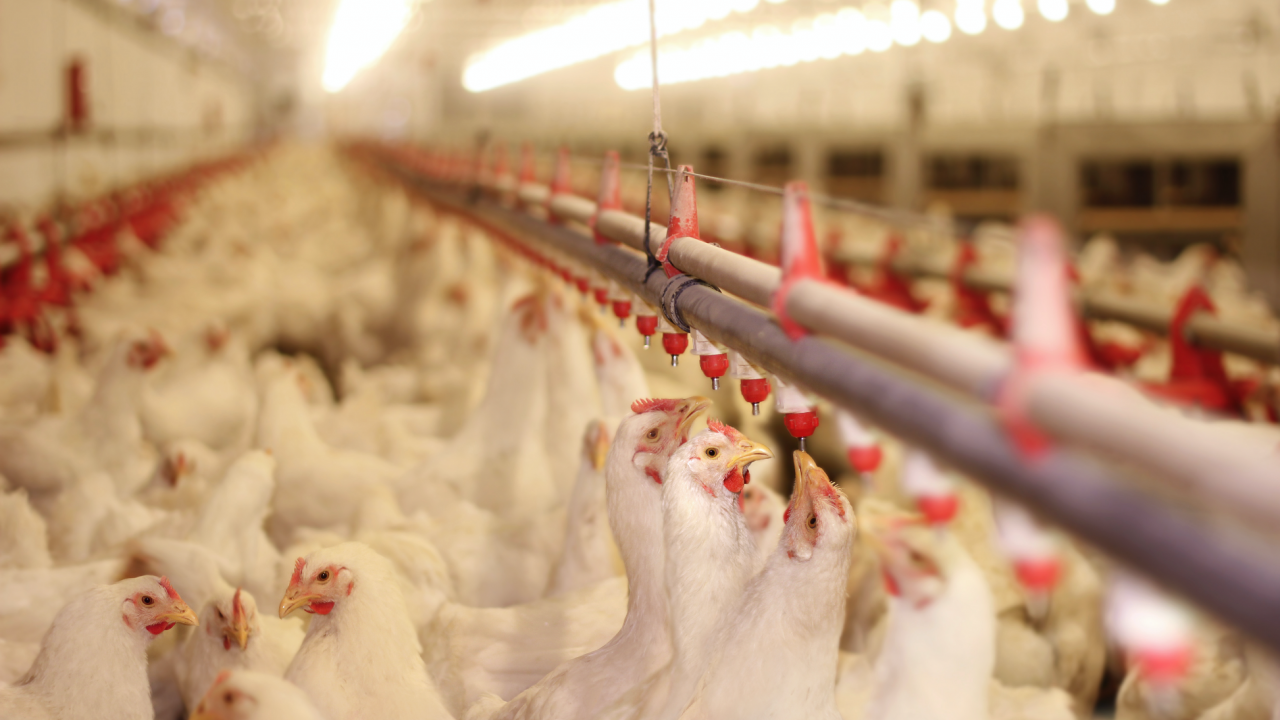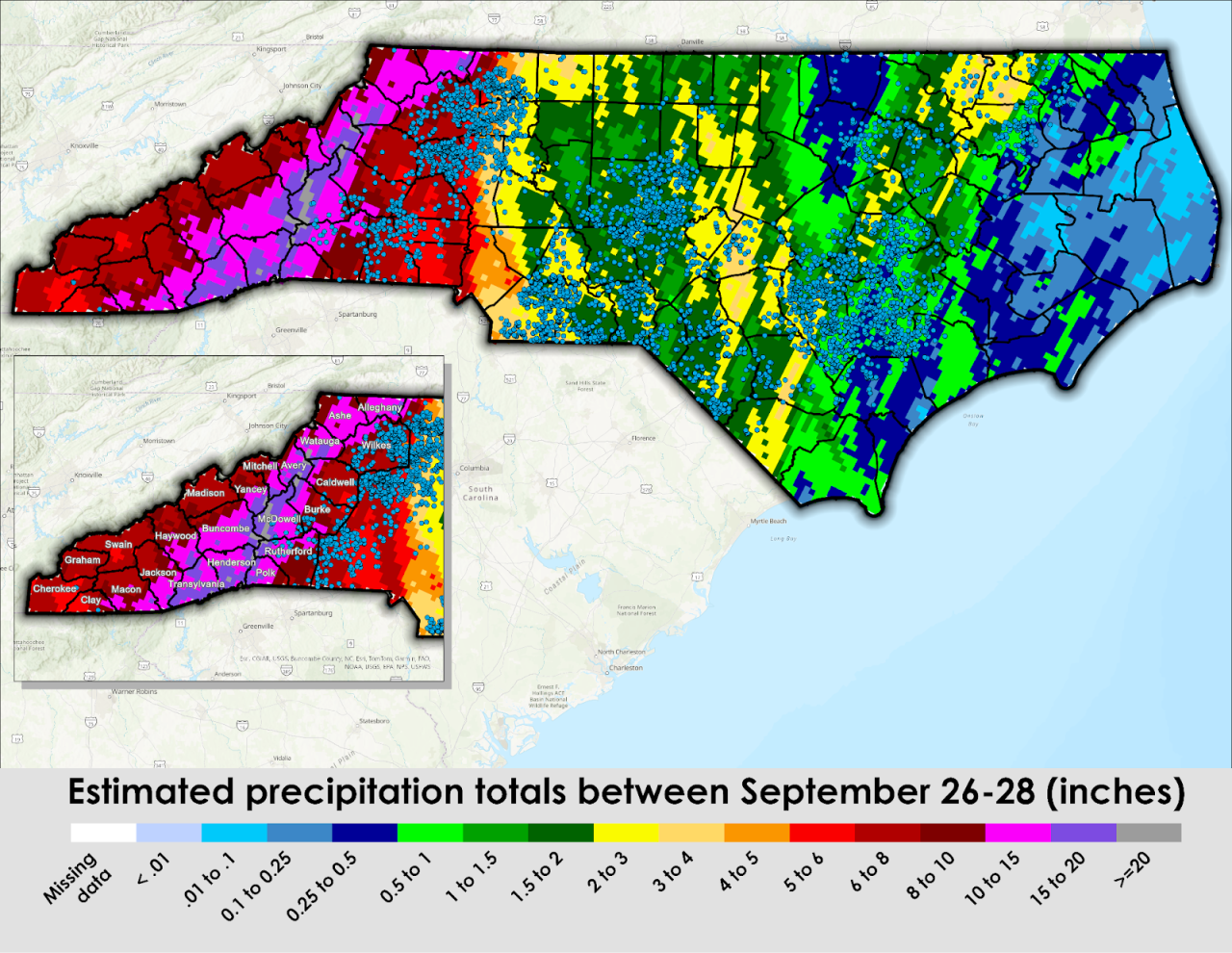
Precipitation from Hurricane Helene inundated 1,021 poultry barns in Western North Carolina that house almost 21.6 million birds, new Environmental Working Group research shows. The torrent increases the risk of poultry manure contaminating private drinking water wells.
Some parts of the 23-county area were deluged with over 20 inches of rain between September 26 and 28, according to National Oceanic and Atmospheric Administration data EWG analyzed.
All of North Carolina received a lot of rain during the hurricane but the western region was hit the hardest.
Of the 23 counties there, as of 2022, Wilkes County had the most poultry – almost 15.2 million birds, producing an estimated 121,000 tons of manure. During Hurricane Helene, parts of the county received as much as 14 inches of rain in three days.
The map below shows the amount of precipitation that fell across the state from September 26 to 28, along with the locations of poultry barns in the state as of 2022.
North Carolina’s poultry barns, overlaid with Hurricane Helene precipitation data in the state.

Source: EWG, from EWG, Innovative EWG study uses AI to find 357M poultry on North Carolina’s factory farms, and NOAA National Water Predictive Service, Quantitative Precipitation Estimate data
Poultry manure is loaded with chemicals like nitrogen, phosphorus and ammonia. It also carries dangerous pathogens like giardia, E. coli, salmonella and cryptosporidium. Manure, and the contaminants it contains, could easily have been washed by rain and flooding from poultry operations into nearby private wells. About 2.4 million people in North Carolina rely on private wells for their drinking water.
In September, EWG released an investigation finding that, in 2022, North Carolina’s poultry operations housed 357 million chickens and turkeys, producing 3.2 million tons of manure.
The North Carolina Department of Health and Human Services recommends that after the flooding recedes, all people on private wells get their water tested for bacteria like E. coli. The agency also suggests that people living near animal facilities contact their local health department to get extra water testing done, because of the increased contamination risk.
In North Carolina, the poultry industry is almost completely free of state oversight. Prospective operators need little more than a building permit to open poultry facilities housing up to 50,000 chickens or turkeys. These concentrated animal feeding operations, or CAFOs, threaten public health during and after flooding, but the dangers they pose to people and the environment are ever-present.
To protect the health of its residents – particularly those in places with the highest concentrations of factory farms – North Carolina must address the serious public health and environmental problems caused by poultry and other CAFOs.



